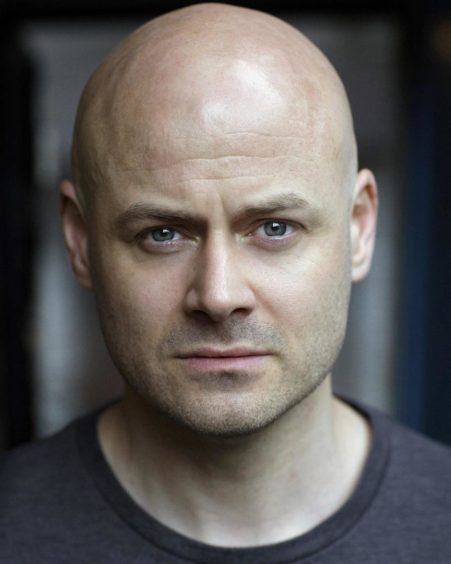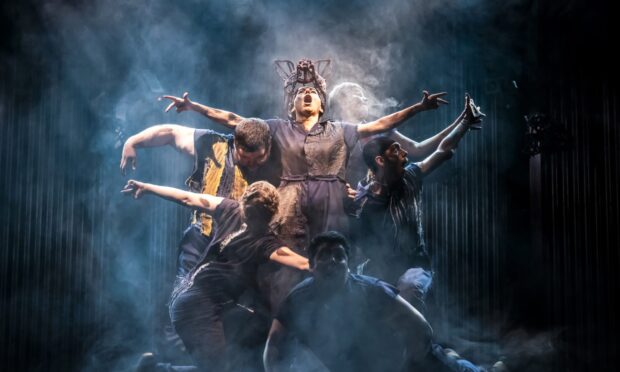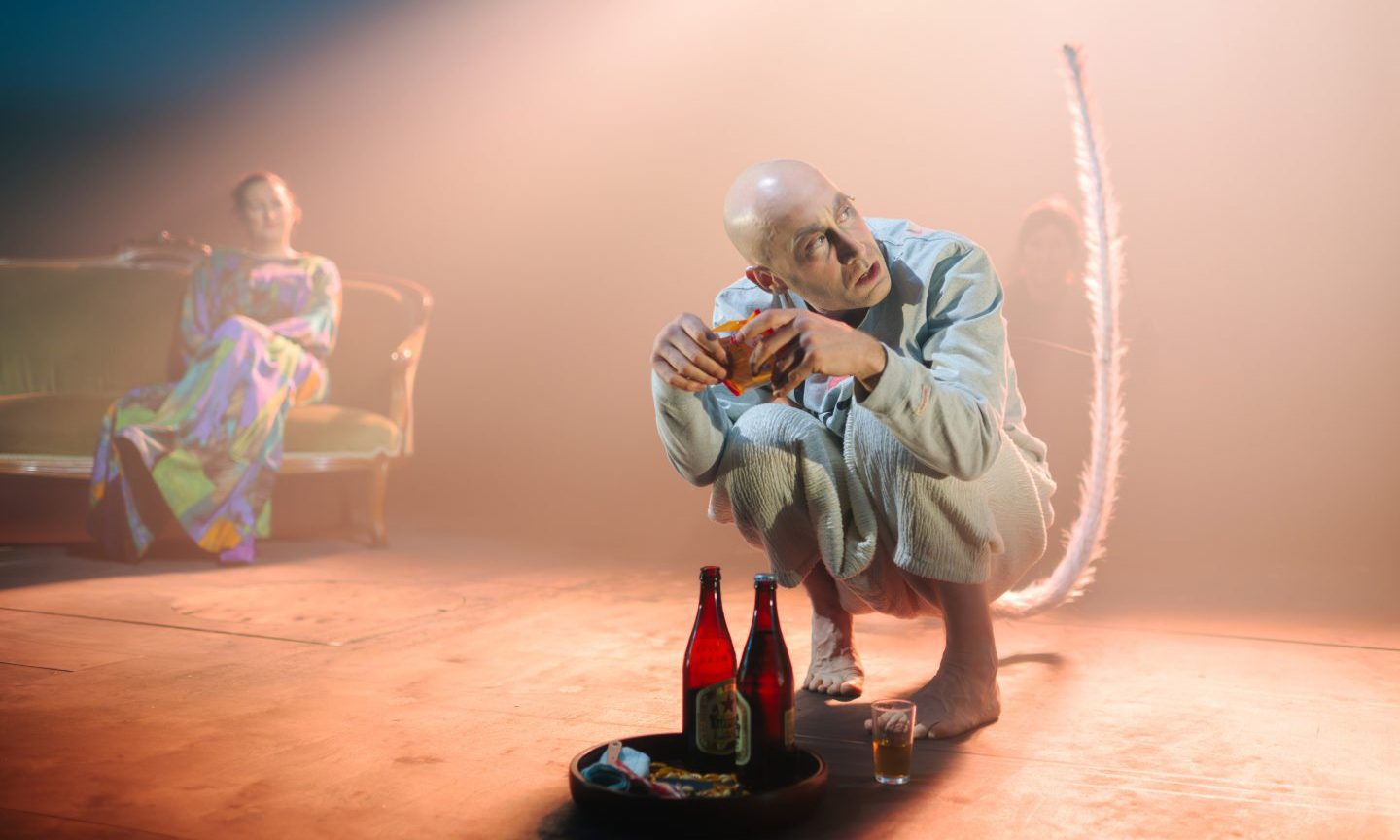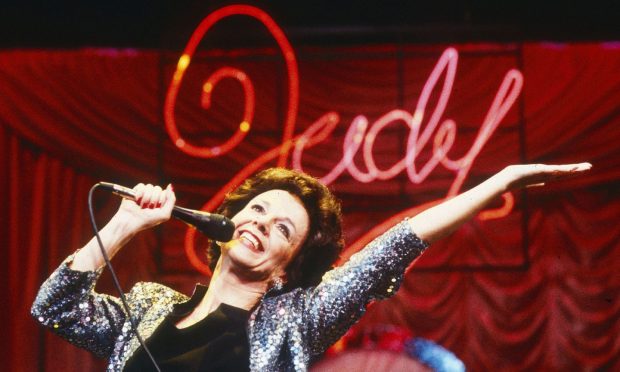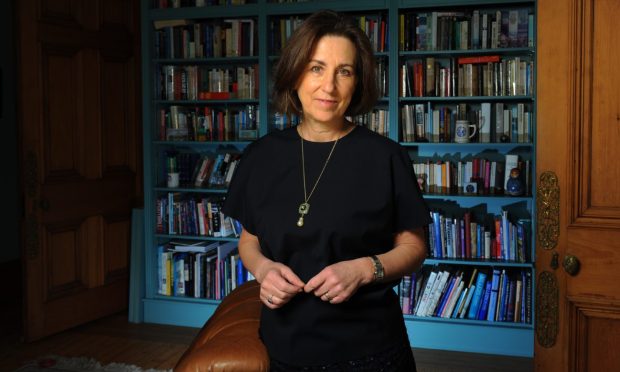“Hindu Times is about the Hindu gods coming to Dundee in the avatars of these typical, mental guys to save Earth,” says Dundonian playwright Jaimini Jethwa of her new play.
Hindu Times which will be available to hear this weekend as part of the Sound Stage series of new audio works, co-produced by Pitlochry Festival Theatre and Edinburgh’s Royal Lyceum.
“Earth is out of balance, and in Hindu mythology Vishnu comes to earth nine times because there’s an imbalance, so this is his tenth time,” Jethwa continues. “But when they get to Dundee, they get a bit distracted – they end up getting locked in a Spar shop at night and getting on it.
“It’s about reigniting this enlightenment, this spirituality on Earth, and bringing back real meaning and purpose and love, because humans have forgotten.”
The Last Queen of Scotland
This is Jethwa’s second major play after 2017’s The Last Queen of Scotland, which was co-produced by Dundee Rep Theatre, the National Theatre of Scotland and Stellar Quines.
It told of her Indian family’s expulsion from Uganda – along with all other Ugandan-Asians – by Idi Amin in 1972, and of how they found their way to Dundee as refugees.
She’s had an eclectic career before that. Studying film in the late ‘90s – including with the National Film and Television School in London – she made short films such as Another Saturday Night.
This featured an early appearance by the Liverpudlian character actor Stephen Graham, whose credits include This is England, Line of Duty and Martin Scorsese’s The Irishman.
A comedy with pathos
This breadth is something which transfers to the themes and style of Hindu Times, which is directed by Caitlin Skinner.
“It’s a comedy, but it’s got pathos,” says Jethwa. “Ultimately the premise of life is suffering, and the Hindu philosophy for me really sheds so much light on the condition of what it is to be human.
“What draws me to the philosophy is that, in Western psychology we’ve got all these names and labels for the things that go wrong with the human psyche, whereas in Hinduism you don’t have that – it’s much more about soothing the human spirit and the soul.
“The play is about finding the divine in the darkest places; it’s everywhere, it’s how you look for it (that matters).”
It seems unusual, but positively so, for a play made in these secular times to look at religion in what sounds like such a positive way.
“Well, to me Hinduism isn’t a religion,” says Jethwa. “It’s a philosophy, a way of life, a way of thought. Some people interact with it as religion, but I don’t.
“To me it’s a guidance, an enlightenment, a spiritual way to look at the world when there’s hardship.
Your ability to find the divine
“The message can be related to anybody from any walk of life. It’s about understanding that as a human, you have the power and the ability, in whatever circumstance you are, to find the divine, even in your own darkness.
“I wrote the play just before Covid happened, which was totally surreal, because the play’s about Earth’s suffering, and something changes to rebalance and reinvigorate and bring love and light back to the planet.”
At one point Jethwa mentions that “Dundee is a spiritual place”, and it seems clear she doesn’t need to look any further for her inspiration.
“Dundee’s where I grew up, it gave me a home, and the city is very, very important to me,” she says. “I love the characters of Dundee, and I find the humour and vitality of the language just unsurpassed.
“There’s so much that Dundonians can say in the language, and to me the Indian language Gujarati’s got the same thing. You say a sentence and it’s got so many inflections and depths and meanings, there’s a symmetry between them.
“Growing up in Dundee I didn’t like the climate, obviously, I was always frozen, but I really loved the way people spoke. The warmth in the language was something that really struck me, and it’s always stuck with me, in fact it’s probably what drew me to writing.
“Even in the early days, when I went to film school in London, I always wanted to write in the dialect and about Scottish people, it was a big thing for me.”
In the world of Jethwa’s writing, it’s possible to place deep thoughts and light jokes alongside one another.
“I don’t believe comedy means you don’t have a powerful message,” she says. “Hindu Times is talking about serious issues, but it has humour, and humour is about the kernel of truth. Comedy enlightens what we’re trying to say, it makes it more palatable – it’s a spiritual thing.”
- Hindu Times by Jaimini Jethwa will be streamed as part of Pitlochry Festival Theatre and Edinburgh Royal Lyceum Theatre’s Sound Stage from tonight until Sunday, with a different post-show talk after each performance. Tickets are available from pitlochryfestivaltheatre.com and lyceum.org.uk


